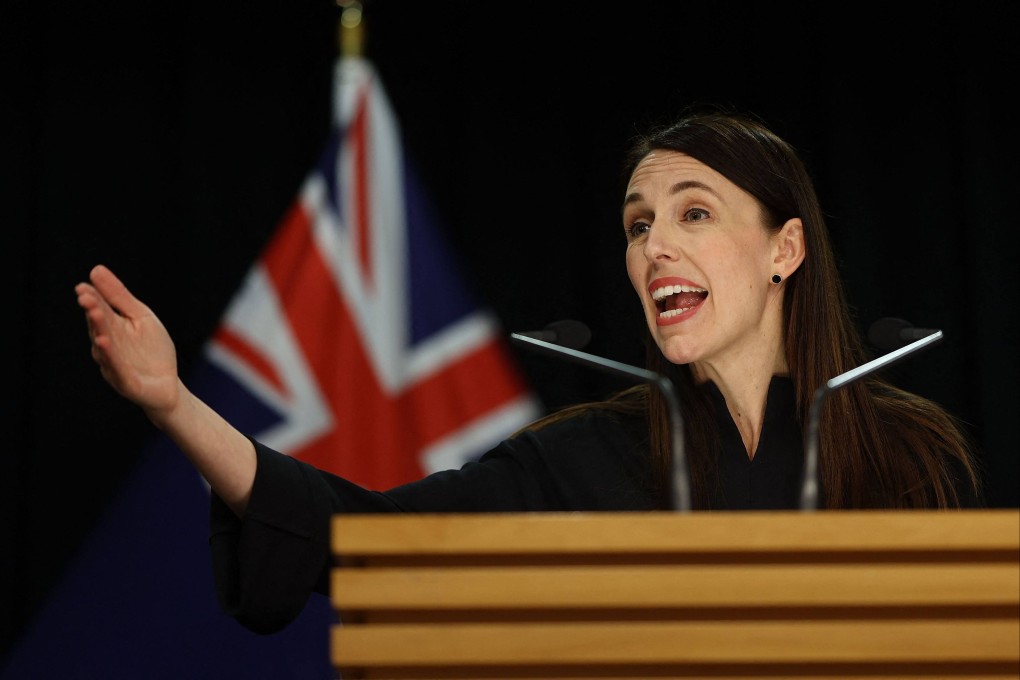Why New Zealand PM Jacinda Ardern’s much-lauded coronavirus response may not be enough to win a third term
- Ardern’s world-leading pandemic response, which helped the country keep the virus at bay for a long time, earned her a landslide victory in the 2020 election
- But some voters, tired of years-long tough curbs that were finally lifted this week, are deserting her Labour Party ahead of the 2023 polls

But their removal hasn’t come soon enough for some voters, who have grown tired of controls on daily life and are deserting Ardern’s Labour Party ahead of the 2023 general election. An economic slowdown also looms next year as the full impact of pandemic measures such as the closed border plays out.
“It looks like a pretty close election for 2023,” said Lara Greaves, a political scientist at the University of Auckland. “Ardern’s world-leading Covid response impacted hugely on the 2020 result. In the time since, every little bit of public opinion polling we’ve seen has shown a decline in that social license or collective consent for restrictive measures.”
While Ardern’s elimination of the virus from the community in the early days of the pandemic was hailed around the world, her management of subsequent developments has been less successful. Opposition parties are calling for a public inquiry into the government’s decisions during one of the biggest events in New Zealand history, alleging a “litany of stuff-ups.”